‘I was some damn human piñata’: How Rodney King described his own beating
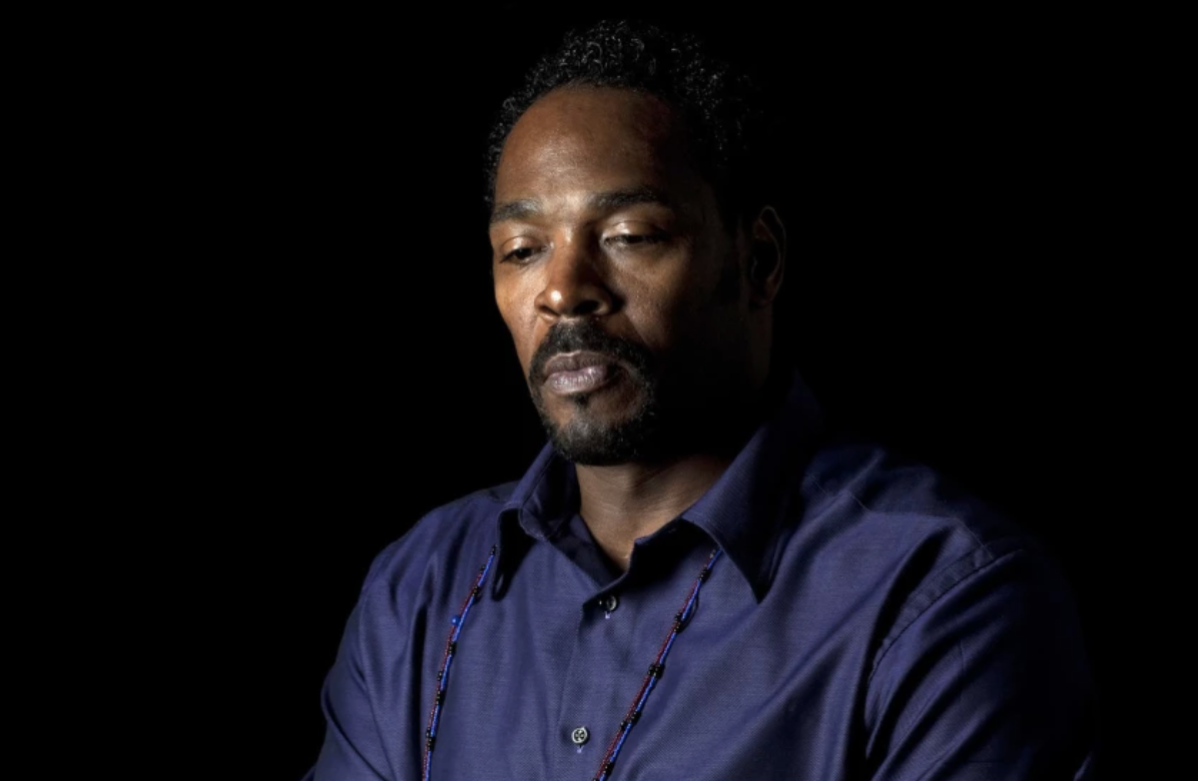
- Share via
Good morning, and welcome to the Essential California newsletter. It’s Thursday, April 28. I’m Justin Ray.
Rodney King didn’t ask to become a rallying cry.
He told The Times in 2012: “I never went to school to be ‘Rodney King.’” In fact, his family didn’t even call him Rodney. They called him by his middle name, Glen.
On March 3, 1991, King was on parole when he was pulled over by authorities. His well-documented run-in with L.A Police Department officers left him with numerous injuries, including 11 broken bones at the base of his skull and a broken leg. King, who died in 2012 at the age of 47, maintained that he didn’t resist arrest.
Outrage consumed the city when the 81 seconds of videotape were released to KTLA. It grew even more on April 29, 1992, when a jury in Ventura County acquitted four officers in his beating. Ensuing riots left at least 54 people dead and caused nearly $1 billion in property damage.
When individuals who experience tragedies grab our national attention, we ironically tend to forget the human at the center of the storm. We lose the person and focus on the plight. They are disrespected in the moment that sparked the fury and stripped of their personhood in the aftermath.
It is for this reason that I wanted to know what King said of the beating, in his own words. Here is how he described it in his 2012 book, “The Riot Within.”
Rodney King describes that night
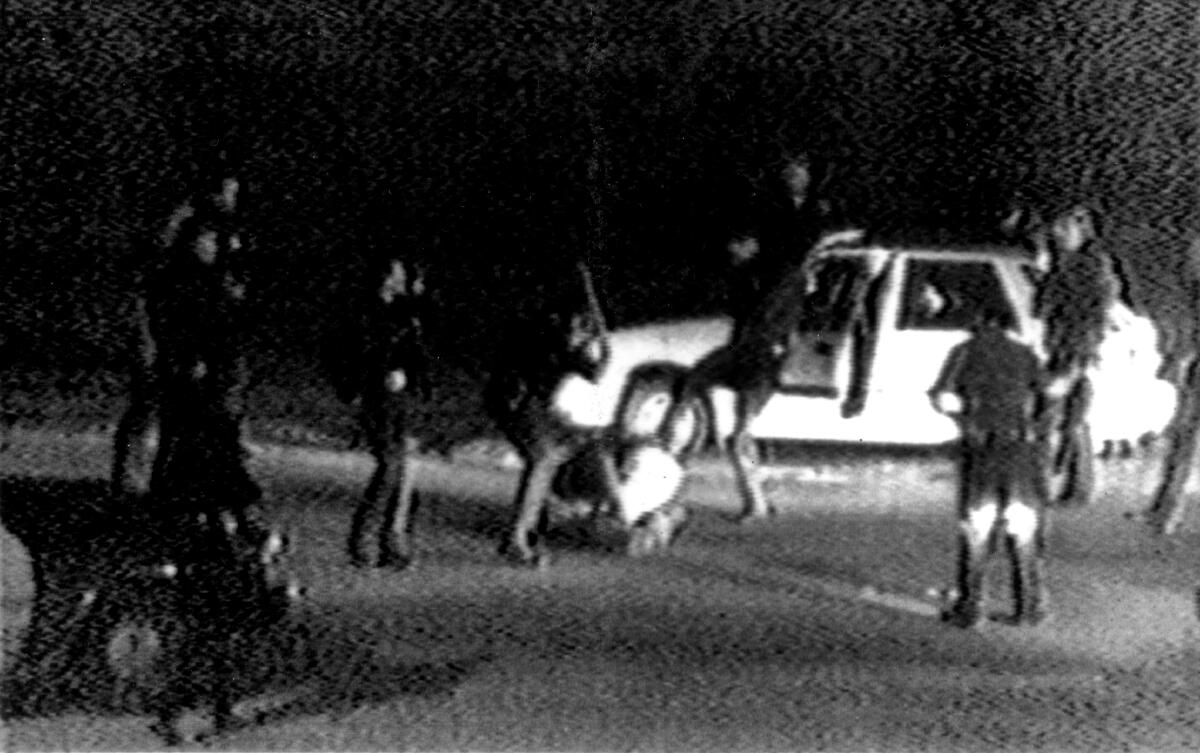
Before he addresses that night, he gives a warning: “This section is going to get pretty ugly, but it is the God’s honest truth and has to be written down so it can be understood what happened to me that night.”
Then, he begins.
“One of the officers suddenly kicked me with his boot in the side of my face, smashing my jaw,” King wrote. “It felt like someone had taken a baseball bat to my head. Before I could even register that unbearable pain, one of the other officers slammed me in the lower leg with his baton.”
Moments later, the beating intensified.
“I was being hit with multiple baton blows to every part of my body — my knees, ankles, wrists and head. The beatings continued to rain down on me,” King wrote.
If he tried to run away, King explains, he felt he would be killed because it would have appeared as though he was running at an officer: “If there was a time, that night, that I was going to give them an excuse to kill me, that was it.” He says he didn’t run, not because he didn’t want to but because his ankle seemed to be broken.
He says the group continued to pummel him: “I kept reminding myself to stay cool, but it was as if I was some damn human piñata and the cops were all in a rush to see who could smash me open first.”
As he lay there amid the violence, he had an out-of-body experience.
“I began to think about all the blacks down South who were slaves and had been beaten and lynched. I felt a strange power at that moment, as if their spirits were all coming together to help me through this,” he wrote.
He was taken to a hospital. According to a grand jury transcript, nurses said Los Angeles police officers taunted King in the emergency room, remarking: “We played a good game of hardball” and “We hit quite a few home runs.”
After the incident, he spoke publicly about what happened, saying he “was scared for [his] life” when the officers went after him.
While he was receiving care after being beaten, King describes not wanting to live because he believed he would be permanently disfigured. But then, he heard a voice. At first he thought it was an angel, but he “looked up to see it was an older, black female cop.” She explained to him that someone had a tape of the incident, “and they were going to see what happened and believe everything I said.”
“When it finally sunk in,” he says, “I just cried. It was wonderful and it was horrible, and I kept thanking the good Lord that he hadn’t walked away from me.”
The Los Angeles Times is revisiting the L.A. uprisings with a series of articles:
30 years after L.A. riots, residents are deeply pessimistic about race relations, poll shows. A series of graphs show how Angelenos feel about race relations in the city and the likelihood of civil unrest returning to the streets.
Revisiting the photographs. Four photographers recall the moments leading up to and surrounding some of their most iconic photos of the L.A. uprising. The article includes an immersive piece composed of historical images overlaid on a present-day 360-degree video.
What we got wrong about Black and Korean communities after the L.A. riots. “The Black-Korean conflict was an enduring storyline during the violence that erupted in 1992,” columnist Frank Shyong writes. “It was a palatable narrative of racial conflict in which white racism was not directly implicated.”
And now, here’s what’s happening across California:
Note: Some of the sites we link to may limit the number of stories you can access without subscribing.
Goodbye, L.A. and San Francisco. Hello, Riverside and Central Valley. California moves east. The Times talked to people who decided to switch up their living situations: “I go to the city, rev up my battery, get my fix of sushi and Indian food, and I come home and I rest,” Natalie Camunas says. “It’s so safe and so quiet, and our dog is so happy.” Los Angeles Times
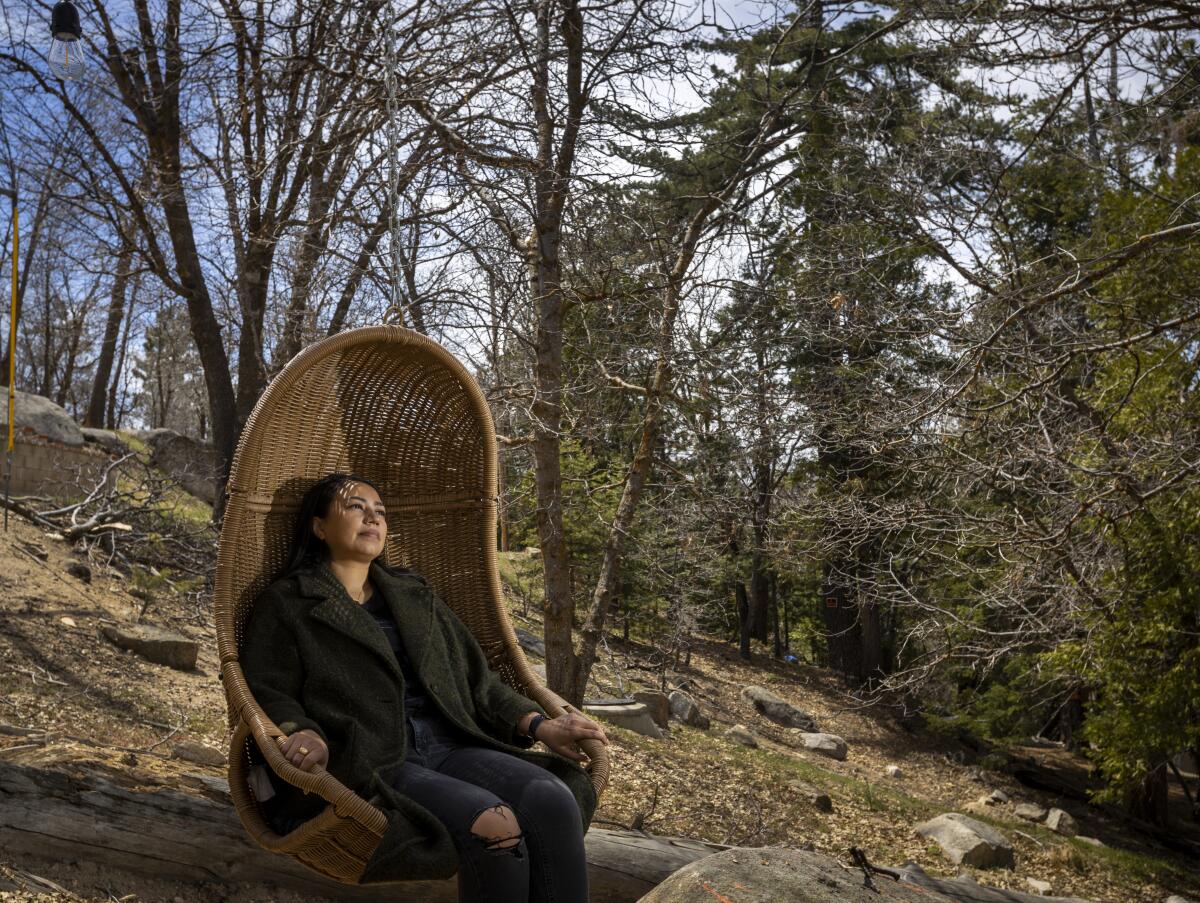
L.A. STORIES
Los Angeles County Sheriff Alex Villanueva previously stated that his department was targeting a Times journalist in a criminal leak investigation. But after a barrage of criticism, he backed off his announcement and denied that he considered the reporter a suspect. Los Angeles Times
Column: Sheriff Villanueva just showed the world the petty emptiness behind his bluster. “This is a man whose job as head of the largest sheriff’s department in the United States is supposed to be about protecting L.A. County from bad hombres. Instead, Villanueva has spent most of his time defending his department with the bluster of a lesser John Wayne character and a skin thinner than tulle,” writes columnist Gustavo Arellano. Los Angeles Times
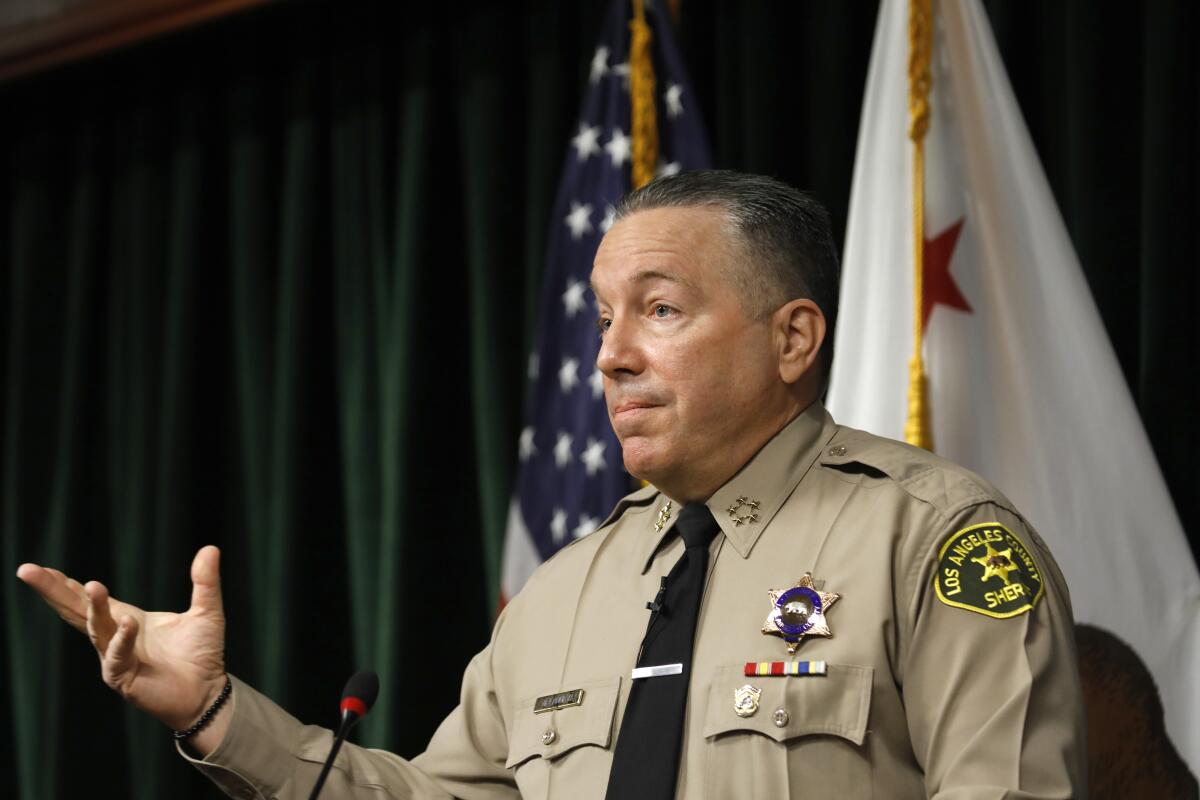
Our daily news podcast
If you’re a fan of this newsletter, you’ll love our daily podcast “The Times,” hosted every weekday by columnist Gustavo Arellano, along with reporters from across our newsroom. Go beyond the headlines. Download and listen on our App, subscribe on Apple Podcasts and follow on Spotify.
CRIME, COURTS AND POLICING
Rebecca Grossman was tailing a friend’s SUV and driving as fast as 81 mph on a Westlake Village road before she fatally hit two young brothers in a crosswalk, witnesses testified. The hearing is being held to determine whether the socialite should stand trial in the deaths of Jacob and Mark Iskander, ages 8 and 11. Los Angeles Times
Support our journalism
HEALTH AND THE ENVIRONMENT
New drought rules limit outdoor watering to once a week. What you need to know. Faced with worsening drought, the Metropolitan Water District of Southern California has ordered major watering restrictions aimed at reducing demand. Here’s a rundown on how it will affect you. Meanwhile, parts of Sthe Southland face a full outdoor watering ban by September if conditions don’t improve. Los Angeles Times
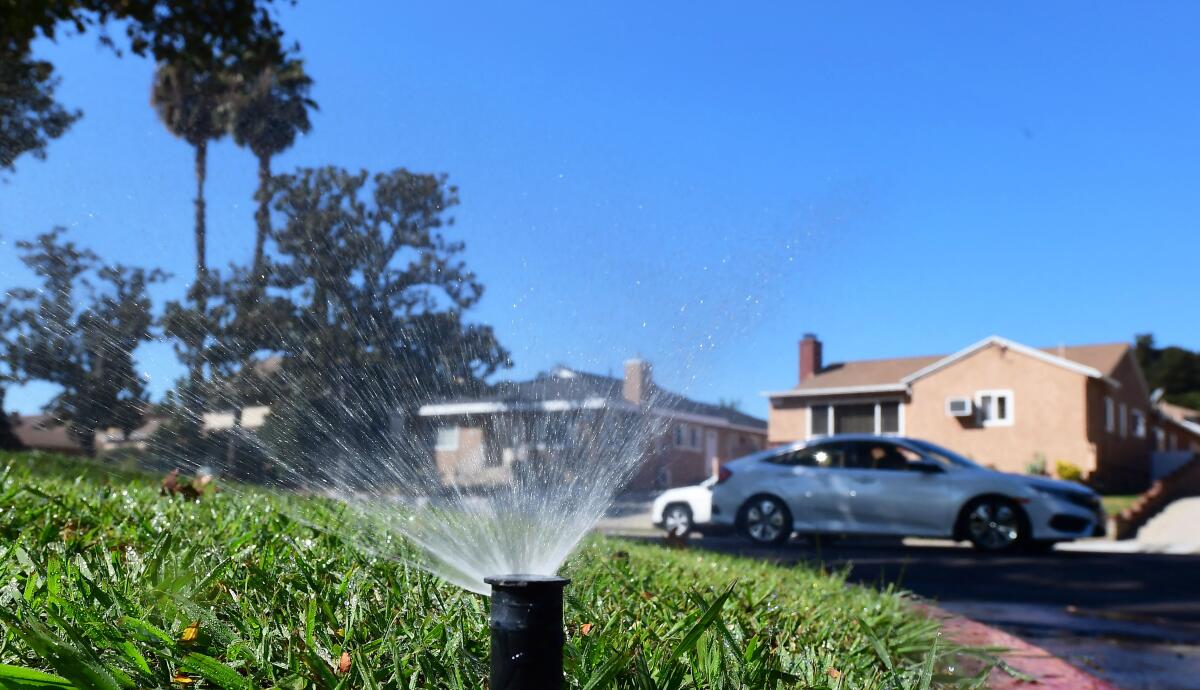
CALIFORNIA CULTURE
A San Francisco teacher’s use of a cotton plant to illustrate the hardships of slavery sparked a backlash. A social studies teacher at San Francisco’s Creative Arts Charter School brought in cotton plants to show students the sharp edges that pierced hands of enslaved people as they picked and pulled the cotton. The school’s director apologized in a letter to families for the “unacceptable, harmful” and “inappropriate” lesson. San Francisco Chronicle
A year after disappearing, federal informant in Trump probe found dead at L.A. high school. An informant who worked with authorities investigating former President Trump’s relationship with the German financial giant Deutsche Bank was found dead on a high school campus in the El Sereno neighborhood. Los Angeles Times
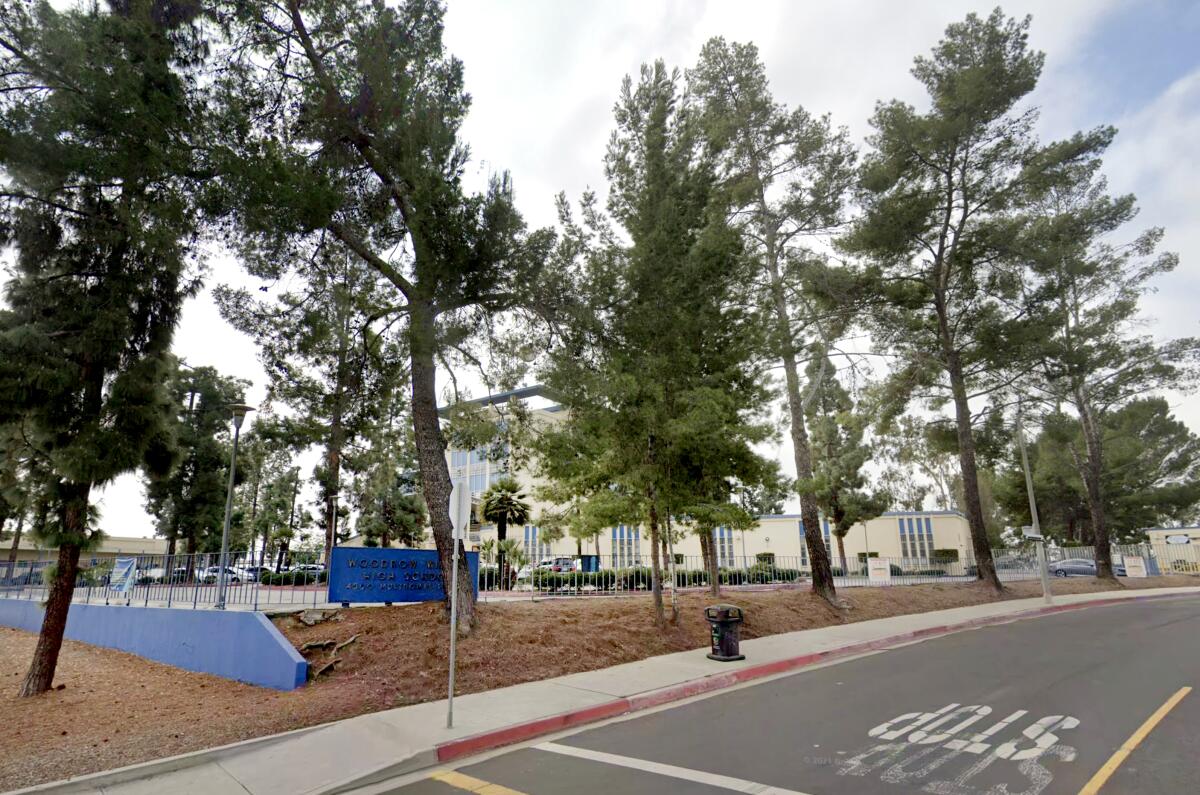
Free online games
Get our free daily crossword puzzle, sudoku, word search and arcade games in our new game center at latimes.com/games.
CALIFORNIA ALMANAC
Los Angeles: Overcast, 67 San Diego: Overcast, 62 San Francisco: Cloudy, 60 San Jose: Cloudy, 66 Fresno: Sunny, 75 Sacramento: Overcast, 74
AND FINALLY
Today’s California memory is from Candy Lingl:
I first saw California at age 30, when sent from New York for an employer training program. My expectation was to find L.A. a post-apocalyptic, smog-ridden, industrial wasteland. Instead, I left NYC on a gray, dirty, cold February day, and arrived in L.A. to find paradise with flowers blooming along the freeway, the sun setting over the Pacific and evening air scented by jasmine. I moved here four months later and never regretted it. That was 38 years ago.
If you have a memory or story about the Golden State, share it with us. (Please keep your story to 100 words.)
Please let us know what we can do to make this newsletter more useful to you. Send comments to essentialcalifornia@latimes.com.
Sign up for Essential California
The most important California stories and recommendations in your inbox every morning.
You may occasionally receive promotional content from the Los Angeles Times.







